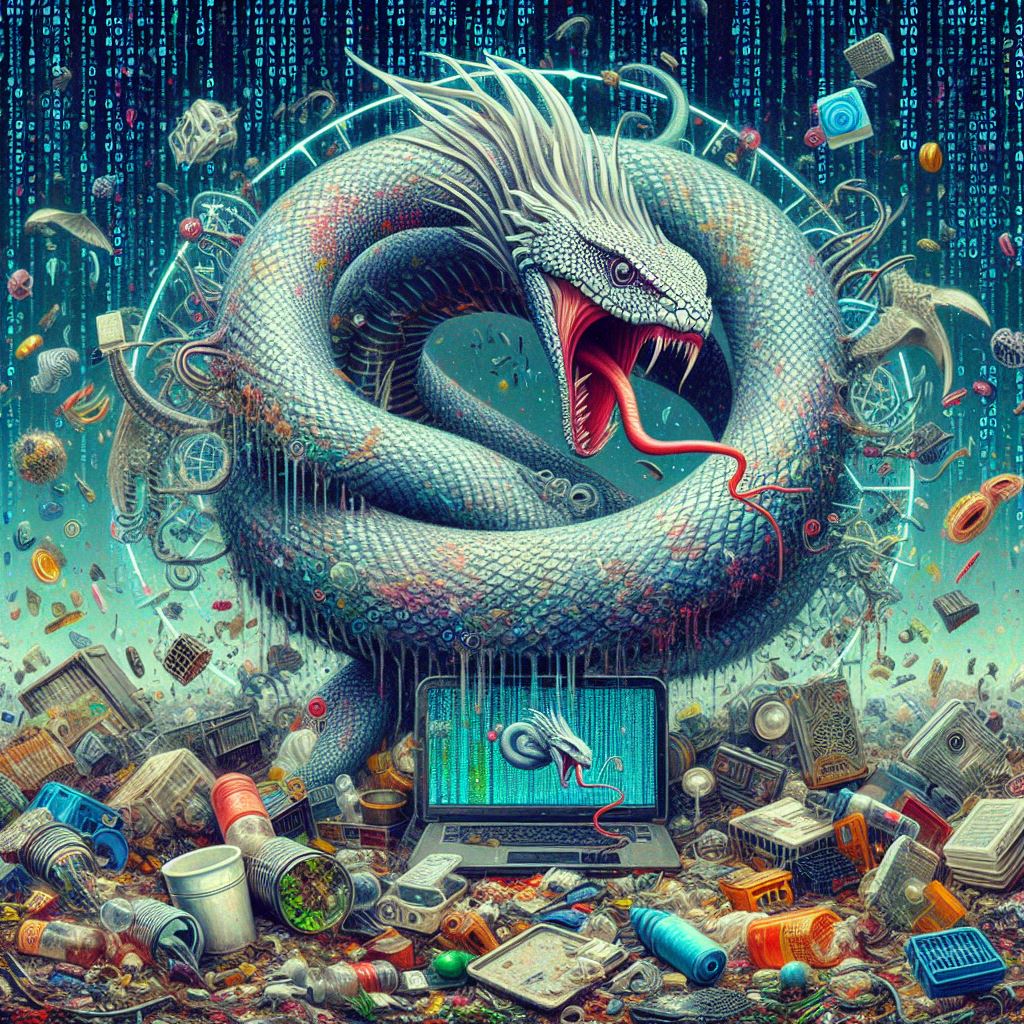The fundamental act of violence is the act whereby we define someone and ‘say what they are’ and we are all complicit in this act. We define everyone we meet as a matter of course. We are all complicit as individuals every time we think about someone else, saying to ourselves that they are ‘this, that or the other’, and we are all complicit as society itself – society being the way in which we all collectively define each other!
This isn’t a moral issue – it’s just what happens when mechanical processes are left to run their course. That’s just what the thinking mind does, in other words – it judges, it evaluates, it categorises. There is no way that thought couldn’t judge or evaluate or categorise; there is no way that this could be otherwise – sorting out information into categories is thought’s essential operation! There is no way that it could be. As useful as this action might be in practical day-to-day terms (recognising a teacup as a teacup, or a spoon as a spoon, or a set of traffic lights has a set of traffic lights) – when it comes to human beings (or any living beings for that matter) the act of defining (or ‘literally representing’) is the primary act of violence.
The reason we can say this is because we are not what we define ourselves (or each other) as being. There is a fundamental ‘misrepresentation’ going on here – a fundamental lie, in other words. Definitions shunt us imperceptibly into a false world. This process of ‘being defined’ starts, of course, shortly after we are born and it continues unceasingly from this point. Again, this is not any kind of moral observation; there is no blame involved – there is no deliberate ‘wrong-doing’. We can’t help defining everyone and everything in sight just as long as we are operating on the basis of the thinking mind, and we almost always are operating on this basis. We know no other basis to operate from.
On the face of it, without going into it any deeper, we might perhaps wonder what the big deal about this is – why are we throwing words like ‘violence’ around so freely? Why would be so dramatic about it? Is it really so terrible to be defined by society, defined by your family, or by people you might meet on the street? On one level of things, this is actually okay – we actually welcome it. We want to be defined! If we happen to be patriotic about the country that we happen to live in – whatever country that might be – then this is a perfect example of us welcoming ‘being defined’. We get a good feeling from saying that we have this that or the other national identity; we get a fierce sense of joy from declaring allegiance to our country. And yet at the same time the prized sense of national identity is a lie – of course it’s a lie – what else could it be? I might shout in the streets that I am English or French or Spanish but that simply isn’t true; there’s no such thing as ‘English’ or ‘French’ or ‘Spanish’, or whatever else – these are all fictions (or ‘social constructions’) that we have chosen to believe in, very obviously!
At the same time as we declare allegiance to who we say we are (or to who others say we are) we deny who we really are and there’s no way that this isn’t going to be the case. Positive identity is always denial. This is in the nature of definition – by saying what something is we are also saying what it is not, and ‘what it is not’ is always a far wider field of possibilities than what we are saying it supposedly is! Definition is denial, therefore. If we say that the ‘total field of all possibilities’ is The Pie, then what something is defined as being isn’t just ‘a very thin slice’, it’s an infinitely thin slice, it’s an abstraction of the pie. Definitions are always abstractions; if they weren’t then they wouldn’t be separate to (or distinct from) every other definition and so there would just be a blur. We separate something by defining it, obviously. We declare allegiance to the abstraction therefore and at the same time as declaring allegiance to the abstraction we deny the reality which is the whole pie. And – of course – the whole pie is the only pie there is! If there is a ‘slice of the pie’, then that slice is also the pie. There is in other words ‘Wholeness’ in every little bit of the pie, which is the Anaxagorean (or holographic) Principle. That’s how it gets to be real – by partaking in the Wholeness! The only thing there ISN’T any Wholeness in is the abstraction, which isn’t actually anything at all really. An abstraction always denies the Wholeness from which it arises.
So here we have a very strange thing to consider – when we deny the Wholeness of who we really are and pledge absolute allegiance to the ‘abstract identity’ we actually feel good about doing this! The action of denying our true nature is pleasurable; to very emphatically say that we are what we are not brings intense gratification! To allow oneself to be defined is in other words a euphoric business, and this clears up the mystery as to why we should all be so very keen to have someone say who we are. This explains why the trap works so well. We all want the sweet, sweet honey of euphoria, after all! There is of course no need to ask why the state of ‘being defined’ is a trap – the question answers itself! How could ‘the state of being defined’ not be a trap?
To be defined is to exist in a state of abstraction – as we have just said – and the thing about this is that to exist in a state of abstraction is not to have any means of understanding what ‘an abstraction’ is, any more than we can know what freedom means when all freedom has been taken away from us. When we have no freedom then were not free to see that this is the case, and when we are in the abstracted state nobody could actually explain to us what this means – the quality of ‘non-abstraction’ is something that we will simply never miss once we’ve lost it – this is the type of thing you can rob from someone and they’ll never know that they have been robbed. They’ll never know that they’ve been robbed because at the same time that we robbed their ‘Wholeness’ we also robbed their capacity to know that they have been robbed.
We are back to Baudrillard and his ‘perfect crime’, therefore. Nobody saw the crime being committed and after the event no one even knows that it has been committed. It’s a completely perplexing affair. Only it isn’t perplexing because we haven’t the slightest clue that anything untoward has happened! So to go back to what we originally started off by saying, the fundamental act of violence (or ‘aggression’) is the act whereby we define someone (or ‘say what they are’) and this is something that we continuously do both to others and to ourselves. We can now add to this statement the observation that this violence (or ‘aggression’) is completely invisible to us. Not only is the violence invisible to us, it is also inconceivable – we have no way of appreciating the fact that it is violence.’ When you judge me you negate me’ says Soren Kierkegaard, but there are very few Soren Kierkegaards around these days to make this observation or to understand it. We don’t understand this point at all because we don’t value anything that hasn’t been defined.
The consequences of this fundamental form of violence are extraordinarily pervasive, extraordinarily far reaching. We are born and very shortly after this we get defined, we get told to what we are. Generally speaking, our doting parents are falling over themselves in their hurry to do just this – imagining quite sincerely that they are doing us a favour, believing quite honestly that they are ‘setting us up for life’, so to speak. Following on from this, everyone else jumps on the bandwagon and finishes off what has been started. The educational process – which we are so inordinately proud of – is all about telling us who we are! It is all about imprinting us with society’s assumptions. As Ivan Illich says in Deschooling Society, “School is the advertising agency which makes you believe that you need the society as it is.”
The mass way of life in which we are all defined and regulated on this basis is an institution and the way of life that we learn in that institution is no good for anything other than ‘life in that institution’, which is what Illich is arguing here –
School prepares for the alienating institutionalization of life by teaching the need to be taught. Once this lesson is learned, people lose their incentive to grow in independence; they no longer find relatedness attractive, and close themselves off to the surprises which life offers when it is not predetermined by institutional definition.
To define is an act of violence, to not define an act of love. Love allows us to be what we are; or as we could also say, ‘love gives us the space in which we can blossom and become – in our own time – what it was always possible for us to become’. Without the gentle warm-hearted sunlight of unconditional positive regard (as Carl Rogers puts it) shining down on us, we go down another road entirely, however. On this other, darker road it is ‘outside interference’ (or ‘aggression’) that sets the tone and as a result of this aggressive interference we become what the ‘external compulsive environment’ demands that we become. We become what the institution demands that we become. And as Jung says, everything then comes from the outside and nothing comes from the inside. What a world of difference this is, and yet we give no thought to it at all! There couldn’t be a bigger difference between these two roads and yet as far as we’re concerned the difference doesn’t even exist! Aggression and love seem to be the same thing…
Once we have been defined, then ‘that is it’ – we don’t look back. We actually can’t look back! So, as a result of our ‘inability to look back’ we carry on the basis that we have been provided with. Everything that happens to us is determined by the way that we have defined, in other words. It’s not so much that we can’t go beyond our definitions of ourselves, but rather that we don’t want to. It doesn’t seem fruitful to us to go beyond our definitions of ourselves and the world. It’s only through being defined that we can obtain the ‘euphoria of belonging’ or the ‘euphoria of succeeding/gaining’, after all. The more defined we are the more intense the euphoria we are able to enjoy, and the less defined we are the less satisfying the euphoria will be and so obviously ‘being undefined’ isn’t going to be a direction that we are going to want to go in! All our rewards are cut off and without the ‘reward-system’ of euphoria guiding us we don’t have any motivation to do anything…
There is ‘zero incentivization’ to be had for making the journey out of equilibrium, and this is why no one is queuing up to make it. Our everyday psychology is such that we won’t do anything without unless we can first see a benefit to it, and there are no conceivable (or quantifiable) benefits to be had at all from ‘the journey out of equilibrium’. This doesn’t mean that they aren’t any benefits, it just means that there aren’t any benefits that we can understand or point a finger at! There aren’t any benefits that exist in relation to the concrete or defined self it is true, but there are benefits nonetheless. This constitutes ‘the trap of the defined self’ therefore – the only outcomes we are interested in are those outcomes that are relevant to our assumed viewpoint and our assumed viewpoint isn’t real. The assumed viewpoint (or ‘positively-defined self’) isn’t real for the very simple reason that it can only exist when it denies the Whole, as we have already pointed out. The positive self (by its very nature) can only exist when it denies the Wholeness of Everything, and yet – pretty obviously – the Wholeness of Everything is all there is!
The ‘benefits’ that come our way when we move beyond the defined self are the benefits of reality, therefore. Reality itself is the benefit that comes our way! The ‘violence’ of the runaway thinking mind (i.e. the thinking mind when it takes over everything) is therefore the violence of ‘separating us from reality’, ‘excluding us from reality’, ‘alienating us from reality’, and what could be more violent than this? The way that this fundamental violence occurs is – as we have been saying – via the process of defining everything in sight including ourselves. Everything gets put in the appropriate category. When we have been defined (or categorised or conceptualised) then we find ourselves in the position of being able to enjoy the euphoria that comes from augmenting or advancing our position. If my sense of ‘who I am’ is extremely narrowly defined then the possibility of ‘gaining advantage’ becomes very real, very compelling… The game can now begin – we are now in the market for euphoria and that wonderfully sweet euphoria (disguised in various apparently legitimate forms) is ‘there for the taking’, if only we can play the game successfully enough…
What we don’t see when we’re playing the game is the unsettling fact that euphoria is always very, very trivial. It’s about as trivial as anything ever can be – it’s infinitely trivial! Actually it’s so trivial that it doesn’t even exist – the problem is that we can’t see that it doesn’t exist because we have lost all perspective in the course of adapting to the game! The position we have put ourselves in therefore is the position of person who gets very excited by the prospect of making vanishingly trivial gains and – to the same extent – very upset and demoralized by the prospect of incurring vanishingly trivial losses! This is the estate we have wished upon ourselves – the estate of the fool who (as Heraclitus says) gets excited by nothing!
In conclusion, we can say that ‘fundamental violence’ is where we are separated from Wholeness without knowing that we have been separated, and without then knowing that there was any such thing as Wholeness in the first place. Fundamental violence can also be explained by saying that it is where we have our freedom taken away from us; again, without knowing that this has happened and also without knowing that there was such a thing as freedom to start off with. We are now incapable of knowing what true freedom is and so in our blind ignorance we chase something else in place of it…
Image – Bogota street art, taken from brokeassstuart.com






